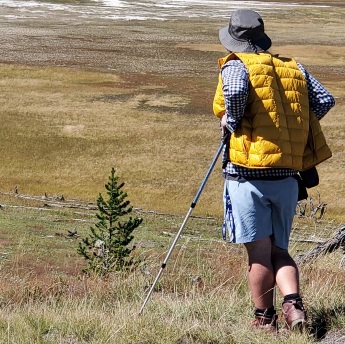
We Americans, and probably those of us in the wider West, have a strange relationship to rest. We have to be always moving, doing something – not just something, but something productive. How often have we felt that simply resting (like taking a nap) was wrong by its very nature of being unproductive?
How many of us, too, were first told by way of Bible class that “idle hands are the devil’s playthings?” It’s that kind of lesson, that idleness is the “devil’s workshop” (according to Proverbs 16:27), that sticks with a person. Especially if that person is a child, still absorbing and internalizing everything that they hear, see, and are taught. To sit and do nothing is to be a tool of demons.
Even the origins of the word are heavy with overall negative (and, at times, morally so) connotations. In Old English the word “idle” meant useless, in Dutch it meant vain and frivolous, and in German bare, worthless. If you are not busy, then you are useless, vain, frivolous, and worthless. There is nothing positive built into the word, meaning one can never be idle in a redemptive way.
At least that is what we’re told.
During the early years of the twentieth century, the British philosopher Bertrand Russell wrote that manufacturing had reached such a level that the work required for the bulk of humanity to live comfortably, and with plenty of leisure time across classes, had been achieved. Now was the time for global rest. Which was fabulous, since Russell felt strongly that “leisure is essential to civilization.”
By labeling leisure as “essential to civilization,” Russell is going beyond the immense power of recuperative rest that leisure allows for, instead arguing that leisure is essential for a civilization to flower and flourish. To come into its own. Leisure is what gives people time, free from want and need, to create.
This might all sound like a no-brainer. And it is. Except sometimes the most obvious things need reiterating; even two people madly in love need to exchange the words “I love you” to feel at ease.
Me, you, us – we are all worth so much more than our productivity. Especially the kind that is exploitative, dehumanizing, and keeps us perpetually in survival mode. “You were not just born to center your entire existence on work and labor,” writes Tricia Hersey in Rest Is Resistance: A Manifesto. “You were born to heal, to grow, to be of service to yourself and community, to practice, to experiment, to create, to have space, to dream, and to connect.”
As a culture, we’ve fetishized Proverbs 16:27 to the extent that we’ve forgotten, or just ignored, the words of Mark 6:31: “Then, because so many people were coming and going that they did not even have a chance to eat, he said to them, ‘Come with me by yourselves to a quiet place and get some rest.’” It’s time for us to heed those words and to rest.
[This essay first appeared in Desert Dispatch on January 12, 2024.]


Leave a Reply